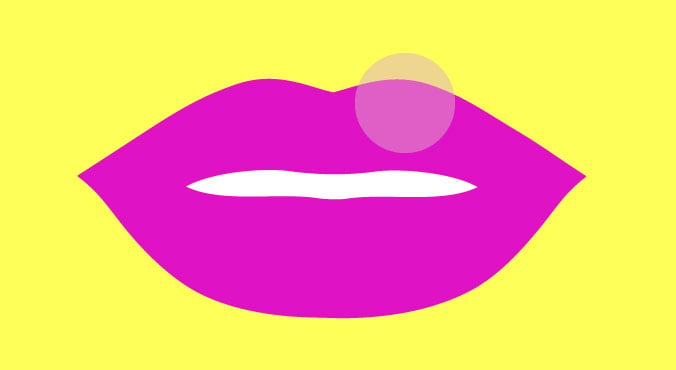
Image: The Glow.
Anyone who suffers from cold sores knows there are several golden rules that will protect loved ones from being infected while the sore is active.
The drill goes something like this: Don’t kiss someone while you have a cold sore. Don’t share cutlery, lip balm, creams, face towels or anything else that could have come into contact with the infected area. Keep your hands clean so the virus can’t be transmitted to other parts of your body (or someone else’s).
RELATED: How to get rid of a cold sore FAST.
So where does that leave us where sex is concerned? You can still have intercourse without kissing someone directly on the mouth, so… that’s safe, right?
Nice optimism there, but it's actually quite risky business due to how the two herpes viruses — HSV-1 and HSV-2 — interact.
"There are two different types of herpes virus — herpes type 1, which is on the lips traditionally; and herpes simplex type 2, which is in the genital area," explains Dr Dasha Fielder from Sapphire Family Medical Practice in Sydney's Bondi Junction.
RELATED: This is what it's like to have herpes.
"But because of the different types of sexual practises [like oral sex], it obviously can be interchanged, and somebody who has a cold sore can potentially give genital herpes to someone who has never been exposed to the virus if the right sexual activity is performed."

